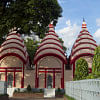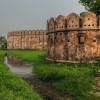Cable car in Cox’s Bazar: Revolutionary or a risky ride?

The government's recent approval of a cable car project stretching from Himchari to Reju Khal along the Marine Drive Road in Cox's Bazar has set public opinion soaring in all directions. The proposed cable car, to be developed under a public-private partnership (PPP), aims to enhance the tourist experience by offering panoramic views of the coastline and surrounding hills.
Sure, this isn't the country's first attempt at a cable car — Bandarban's humble ride at Meghla Parjatan Complex was introduced back in 2010. However, this new plan is far more ambitious, and the stakes are much higher.
So, we asked people of all ages what they think about this high-flying idea, and the answers ranged from cautious optimism to outright disbelief. While some dream of floating above the golden sands, others worry the project might just crash and burn — figuratively, and maybe even literally!
Although Ismot Hasnine, a student at the University of Dhaka doing a master's in Urban and Regional Planning and Development, sees potential in the project. "I think this is a very good decision," he says. "Cox's Bazar, being Bangladesh's premier tourist destination, needs activities regulated by credible people — and that means the government in this case." He adds, "Right now, there aren't many good sources of entertainment, so people look for fun wherever they can find it, even if it's unsafe. But since this is a government project, and if it's implemented well, I think it's not a bad call. Even risky activities like parasailing should be run by credible people."
On the other hand, not everyone agrees. Samira Sayeed Jeeta, another student from the same department, is far more sceptical. "I don't see much hope here. We all know how things usually go in Bangladesh when it comes to big projects," she says. "The real question is not if it will happen, but how long it will take — and whether it will stay standing once it's built! Because nothing is properly maintained here."
She also shares a personal experience from her last trip to Cox's Bazar; "I went parasailing, and I was shocked by how careless they were. They just strapped me into a harness and shot me up into the sky — no safety measures, no proper checks, no nothing! It felt unsafe, and I don't think this new cable car project will be any different."
Jeeta adds without a pause, "If you really want to improve the tourism sector, start with the basics: proper, affordable accommodations, and safety measures. We girls often feel unsafe going there alone on the beach. Make us feel safe first. Without fixing those major issues, don't rush into big projects like this."
Unlike Samira, Rakibul Islam, who's about to head abroad for another master's in Environmental Studies, shares a hopeful yet cautious take. "Honestly, I think this was long overdue. Cox's Bazar is the world's longest sea beach, yet it's always felt like we're just showing off a natural gift without offering much to actually do. Look at Bali, Hanoi, or Phuket — people flock there not just for the beaches, but for the experiences. A cable car could be a game-changer, sure, but here's the thing: we have to get it right. It can't just be a shiny new toy; it needs to blend with the environment, not bulldoze it. And safety — ah yes, if we're dangling people over the sea, we'd better make sure the cables are strong enough to handle more than just salty air and good intentions!"
Cultural preservation is, of course, another major concern for some. "We must balance development with maintaining the natural and cultural heritage that makes Cox's Bazar unique," emphasised Aboni, another university student studying Geography and Environment.
Additionally, recent incidents, such as a couple falling during a parasailing activity, have heightened safety concerns among parents and elders. "We need assurances that this won't be another poorly managed attraction," cautioned Nazmun Nahar, a former schoolteacher. "Safety protocols have to be top-notch. Otherwise, I won't let my daughter or anyone close to me go and experience that."
Well, indeed the cable car project has undeniably stirred diverse opinions. Many are anticipating a boost to tourism and the local economy, while others are urging caution and thorough planning.
But eventually, I think the cable car could become a symbol of progress — or a cautionary tale — depending on how well it addresses the hopes and fears of those it aims to serve!

 For all latest news, follow The Daily Star's Google News channel.
For all latest news, follow The Daily Star's Google News channel. 








Comments